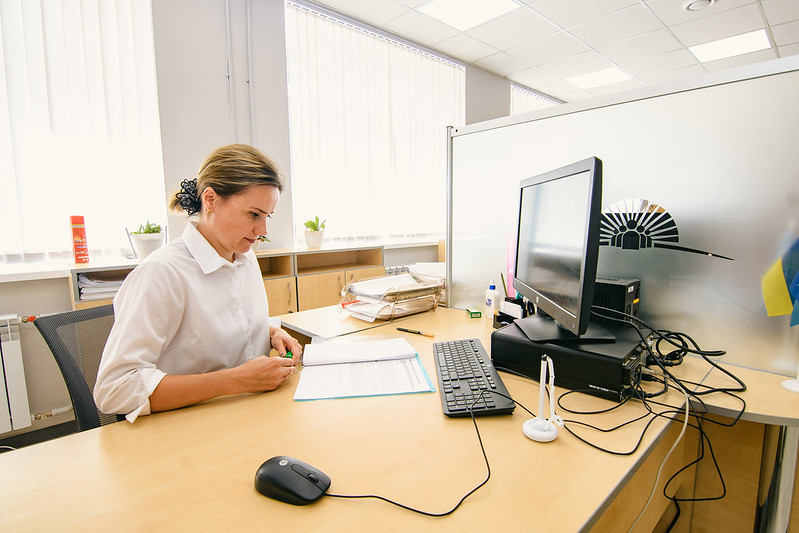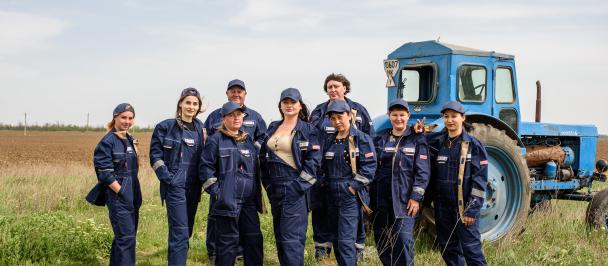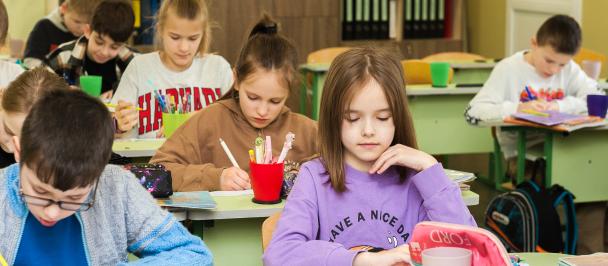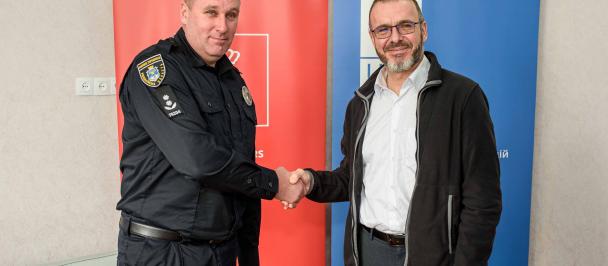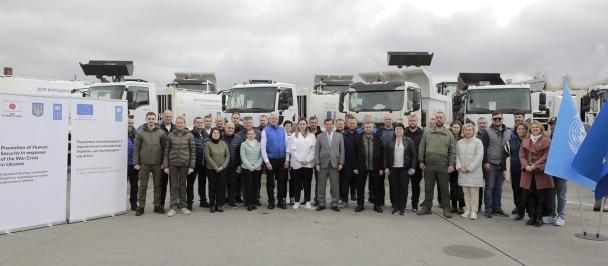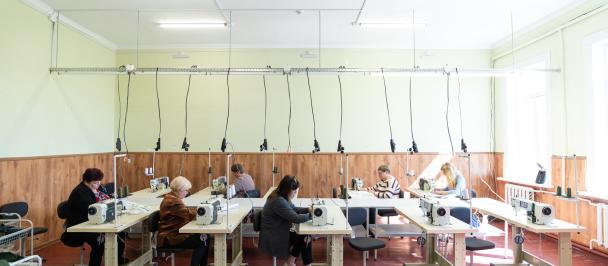The course will help to improve the quality of administrative services in communities, advance the professional skills of the Administrative Services Centres employees
Photo: Artem Hetman / UNDP in Ukraine
Kyiv, 1 September 2020 – The Ministry of Digital Transformation and the United Nations Development Programme (UNDP) in Ukraine have launched a joint online course on legal and organizational aspects of the work of Administrative Services Centres, or ASCs.
The course was developed under the UN Recovery and Peacebuilding Programme, with funding provided by the government of Canada.
The course “Legal and organizational aspects of ASCs, ASC organizational management and administration” was developed in partnership with the ASC in the city of Kremenchuk, Poltava Oblast, engaging the centre’s management and staff. The course explains legal regulations covering ASCs and their main functions. The course is available on the online platform “The School of Resilient Communities”.
Deputy Minister of Digital Transformation Liudmyla Rabchynska stressed that the constant professional development of ASC staff is a requirement for improving the quality of administrative services.
“The new online course on legal and organizational aspects of ASCs will teach service providers to organize processes competently and use resources efficiently,” Ms. Rabchynska said. “This course will be especially useful for ASC heads and local government officials, especially those of the newly amalgamated communities. We greatly appreciate our partner, the United Nations Recovery and Peacebuilding Programme, for the support and effort that it provides to improve the skills of service providers.”
Not only the theory in the course, but also its practical materials will be useful to representatives of local governments who plan to organize the work of ASCs, as well as all those who work in the field of establishing or improving the activities of such centres. Students of the course will receive detailed information on the following topics:
- reviewing the functioning of an ASC, its structure, requirements for its organization and location;
- the features of work and responsibilities of administrators;
- the tasks of, and skills and knowledge required by administrators;
- features of communication with service provision subjects;
- issues of integration of the administrative services in ASCs;
- the procedure for the registration of services and issuance of results.
The coordinator of the Local Governance and Decentralisation Reform Component of the UN Recovery and Peacebuilding Programme, Olena Ruditch, stressed that the provision of such training opportunities will contribute to the development of educational potential in the service delivery field in communities in Donetsk and Luhansk oblasts.
“Administrative services for the population are one of our main priorities in supporting the decentralisation reform and the development of local self-government in eastern Ukraine,” Ms. Ruditch said. “We strive to maximize the system of cooperation between local authorities and community residents, not only by creating stationary and mobile ASCs, but also by methodically training staff, adopting the best existing practices.”
Media enquiries
Maksym Kytsiuk, Communications Associate, the UN Recovery and Peacebuilding Programme, maksym.kytsiuk@undp.org, +380 63 576 1839
Background
The United Nations Recovery and Peacebuilding Programme (UN RPP) is being implemented by four United Nations agencies: the United Nations Development Programme (UNDP), the UN Entity for Gender Equality and the Empowerment of Women (UN Women), the United Nations Population Fund (UNFPA) and the Food and Agriculture Organization of the United Nations (FAO).
Thirteen international partners support the Programme: the European Union (EU), the European Investment Bank (EIB), the U.S. Embassy in Ukraine, and the governments of Canada, Denmark, Germany, Japan, the Netherlands, Norway, Poland, Sweden, Switzerland & the UK.

 Locations
Locations